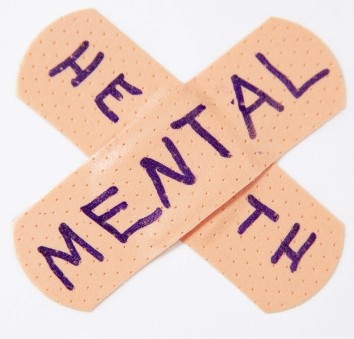5 Ways to Maintain Mental Health Despite Chronic Pain & Fatigue
Mental Mind Meld : Mental health issues can affect many other conditions. Write about mental health, emotions, and challenges as they relate to your condition. How does your mental health affect your overall wellbeing?
Chronic Pain and Fatigue Can Cause Depression
Whether or not one has a history of mental illness, being in pain or tired 24/7 can cause depression. As someone who has had Bipolar II my whole life, Polycystic Ovarian Syndrome (PCOS) for 10 years, and my autoimmune disease Myasthenia Gravis (MG) for 5 years, I know that keeping your mental health in check is necessary for recovery. Stress is bad for MG, and can trigger relapses—that almost happened to me once. Coming from a family of cancer survivors, I’ve seen how staying emotionally healthy is important on many levels.
Emotional/Physical Link is a Double-Edged Sword
The fact that emotional and physical health is inextricably connected has both negative and positive consequences. People who meet me often assume that bipolar disorder must constantly make MG worse. Yes, there are moments when the inertia of sporadic depressive days exacerbates MG’s fatigue. However, my experiences with bipolar also help me in three ways. I was diagnosed with Bipolar II at 18 and PCOS at 19. Unconsciously I had been developing strategies for fighting depression since I was a child. One thing I learned from graduating college with Bipolar II and PCOS was that I could do anything. I bring this confidence with me to every battle with MG, which I was diagnosed with at 24-years old. Essentially, a lifetime’s worth of experience fighting bipolar, in some bizarre way, prepared me for the rollercoaster that is Myasthenia Gravis.
The second thing I learned from fighting bipolar disorder is to distinguish between logic and emotion. Sometimes emotions can be deceiving—bipolar mood swings tell me, “Life is worthless. It’s empty. I hate the world.” But when I was in college, I learned to talk back to those lies with truth. I tell myself, “Life is not worthless. I’m in pain now. My life is full. I don’t hate the world; I hate the way I’m feeling right now. This too shall pass.” There are days when the pain is unbearable and I have to talk back to the lies that MG and PCOS brings.

Third, what I learned from my melting pot of illnesses is: Just as physical health can negatively impact emotional health, emotional health can positively impact physical health. Sometimes I wake up tired. I push myself to exercise. When I do Pilates, endorphins (“feel good hormones”) are released . Twenty-two minutes later, I feel better about life. With my faith, I use a positive mindset to keep me “up” when my body is dragging me down. The mind and heart are compensating for the flesh. They’re telling my immune system, “Take that! You can’t keep me down.”
5 Ways Maintain Emotional/Mental Health:
1) Exercise: If it’s possible, push yourself to exercise. (I was bedridden for over a year. So I know there are exceptions; don’t exercise if it causes injuries.)
2) Therapy: If I didn’t have Bipolar II, I would still see a therapist. Being in chronic pain is not normal and it can make anybody lose it. Seeing my therapist keeps me grounded. Seeing a psychiatrist can also help—he or she may prescribe antidepressants or SSRIs if necessary.
3) Emotional support network: Find friends and family you can trust. Oftentimes having someone to listen to me helps me feel better. Support groups can also help.
4) Outlets for Stress: Aside from my Pilates, which releases toxins, I have other outlets like writing and painting.
5) Faith: I know not everyone has the same beliefs. But I couldn’t survive without my faith. As I go about my day, I tell myself, “I can do everything through Christ who gives me strength” (Philippians 4:13).

–Your Stylist,
Jessica Gimeno




